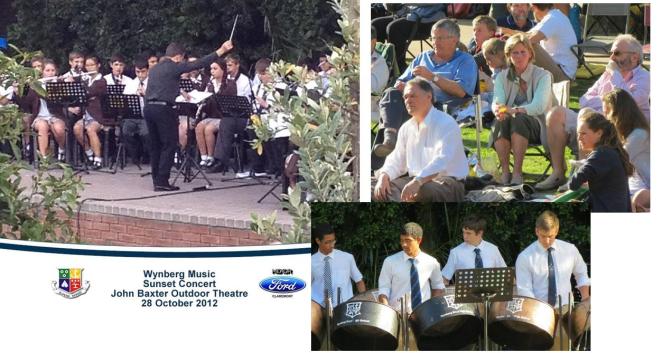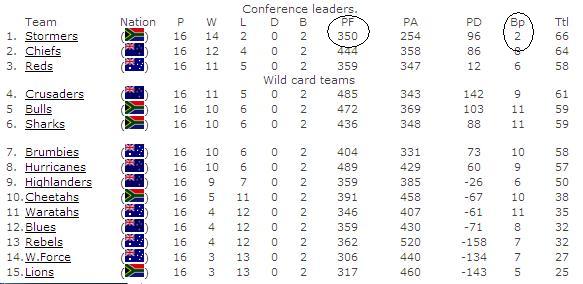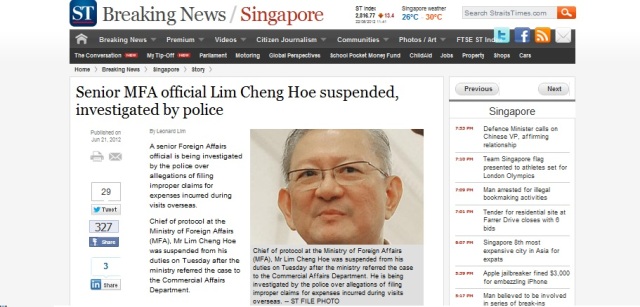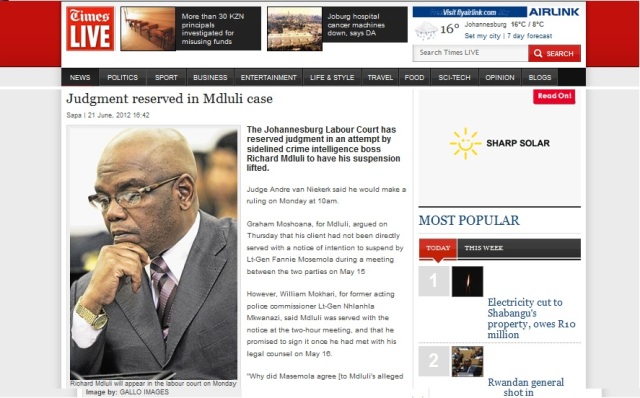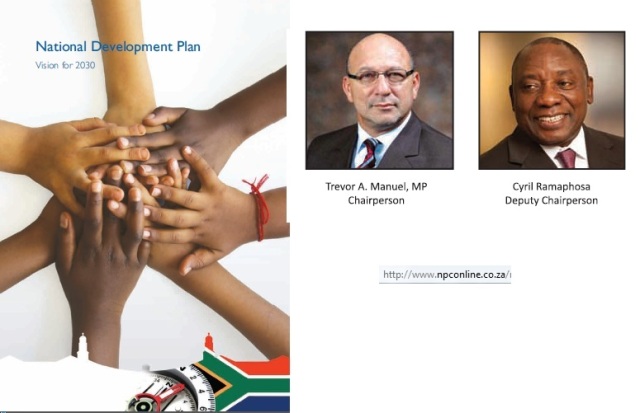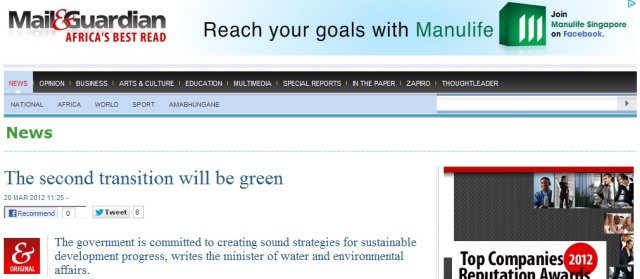(Written 9 June 2012)
Dear All,
There has been much discussion in the South African media about the destruction of interpersonal relations and the problems that arise from some considering themselves inferior or superior to others; what we would readily recognise as the old problem of racism. The reaction by a portion of South African society to the Brett Murray painting The Spear is a case in point, to which I should like add the comment that it takes two to make racism ‘work’, there has to be a victim and a victor.
In 2008 I took a job as a science teacher at a school that was specifically focussed on working with children from disadvantaged black communities. Having spent most of the previous 35-odd years of my working life in some or other engineering capacity, this was a significant change in my life, one that presented unexpected challenges. I had expected that my offering and expertise from the world of science and technology would be welcomed – and indeed they were warmly welcomed by the children – but you can imagine my surprise when, as a person, I was rejected by the inner management of the school. Rejection of this sort had never happened to me before and it took a while to figure out why an industrious, well-meaning, committed and friendly person would be ostracised by the adults at an institution like that? The reason was that my behaviour was seen as that of a “dominating white male”.
The question of racism on such a personal level is generally not confronted in the engineering world and so I had never before been accused of real, or imagined, interpersonal racism. I have always taken the view that racism is a bad thing but I had had no real, personal understanding of the destructive nature of racism in its many guises. In any event, at the time I was struggling to find my feet in the classroom and given that I had been told by an otherwise knowledgeable friend that, “Honkies cannot teach in the Townships” (Whites cannot teach black children), I was very focussed on trying to find out how to relate to children in a learning environment, especially children who’s experiences and cultural background was quite different from mine. So being accused of racism at a time like that was a bewildering problem.
A useful way in which to understand human interaction of the sort outlined above is based on Patsy Rodenburg’s book, Presence: How to Use Positive Energy for Success in Every Situation (Michael Joseph, 2007). Rodenberg develops the model by which three modes of human interaction are described and she refers to these modes as “circles of energy”. An excellent description of these concepts is given at http://sciencestage.com/v/5454/patsy-rodenburg-the-second-circle. Here is my summary of the circle model:
1st circle of energy: Where interaction is characterised by introversion, withdrawal, subservience and “being the victim”.
2nd circle of energy: Where interaction is characterised by balance, give-and-take, intimacy and “being an equal”.
3rd circle of energy: Where interaction is characterised by extraversion, imposition, control, domination and “being the boss”.
As noted, for a number of years I had been an engineering manager and although I was conscious of being a newcomer in teaching, I suppose I unwittingly took on the look of a ‘boss’, although I am not sure of this. Certainly I had a lot of skills to offer but that, paradoxically, also seemed to be a failing. Apparently my colleagues didn’t need a capable person to lay a golden egg every other day, they wanted people around them who would let them feel as equals; something they apparently could not do with me because I was perceived as a dominating white guy. All their lives they had been threatened and demeaned by dominating white guys and they resented it deeply. Using the Rodenberg model, my behaviour was seen as being of the 3rd circle, imposing and controlling, which automatically drove them into 1st circle. When I found I was inexplicably being frozen out of the team by the management of the school it was my turn to exhibit 1st circle behaviour… and because I did not know why all of this was happening, I remained in the 1st circle until I left the school.
In the tradition of Michel de Montaigne (1533–1592) – who invariably used himself as an example – I can see evidence in my own life of not being properly schooled in the art of living in the 2nd circle. Like so many people in our society, somewhere early on the knowledge of how to live effectively in the 2nd circle appears to have been knocked out of me to some extent. Was it that boarding school? Perhaps it followed from the rigid instruction always to “stand on your own two feet”. I do not know how or why it came about, but I have since become convinced that the best way to get through the world is to learn the skill of graciously receiving and giving, as equals, for as Rodenberg puts it, “we need to be in 2nd circle in order to survive.”
Accusations of racism such as those experienced at the school automatically result in 3rd and 1st circle behaviour, which in turn allows for the justification of the disengagement on both sides. In a perverted way, racism offers an illusion of ‘safety’ in the interaction in that it defines where each stands in relation to the other. But sustained 3rd and 1st circle behaviour is insidiously dangerous in that it wilts the human spirit and destroys what could have been. A country in which its citizens lock themselves in such a paradigm is doomed to fail.
And what of the cure for racism? Well, that may not be so easy for it requires both parties to want to interact in the 2nd circle, an engagement that requires a degree of personal courage and understanding from both sides. It requires that both parties want to give and take. And it requires that neither party identifies victims and victors, but that each learns to see themselves and the others as equals. Far sooner said than done… a task that requires great leadership.
Regards
Jeff
PS: In considering all of this I went back to my notes on Paulo Freire’s Pedagogy of Freedom, writing that makes a lot more sense to me now, and I have made it a personal goal to try and lecture in the 2nd circle. Although I still have a great deal to learn about the subtleties and nuances of speaking, listening, feeling and thinking in each of the “circles of energy”, there is something of which I am already quite certain, “We need to be in 2nd circle in order to survive.”
PPS: Thanks to Vicki Bawcombe, who, by way of helping me develop some teaching skills, suggested I read Patsy Rodenburg’s work.

